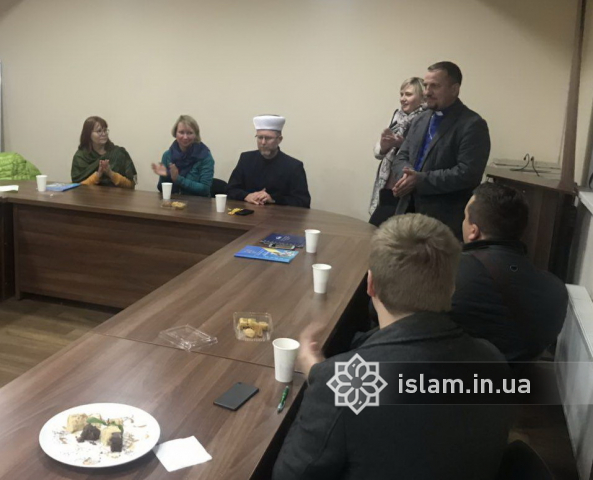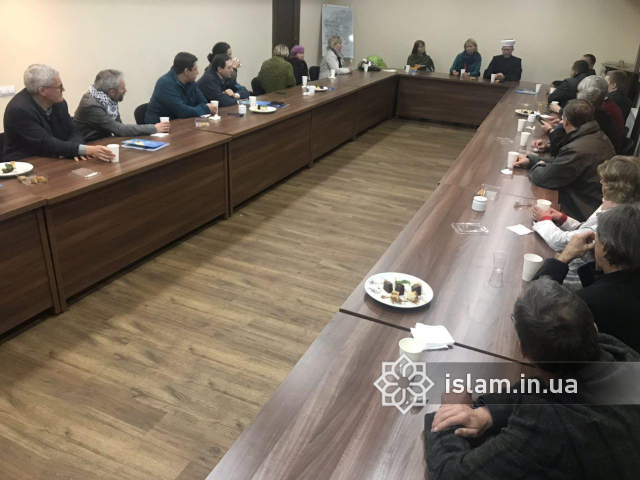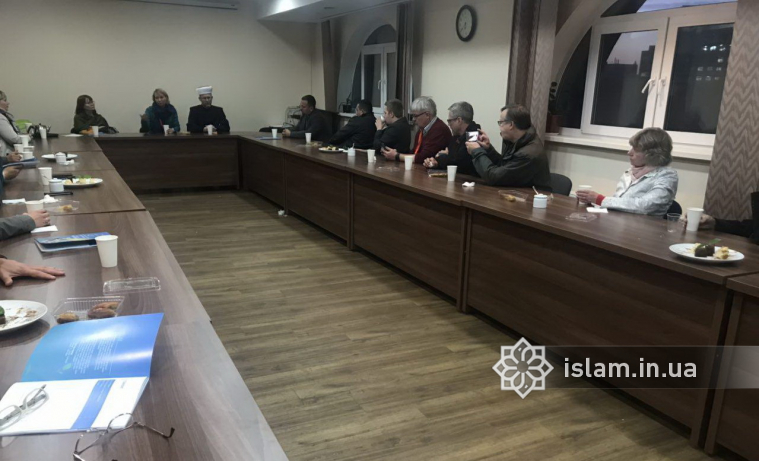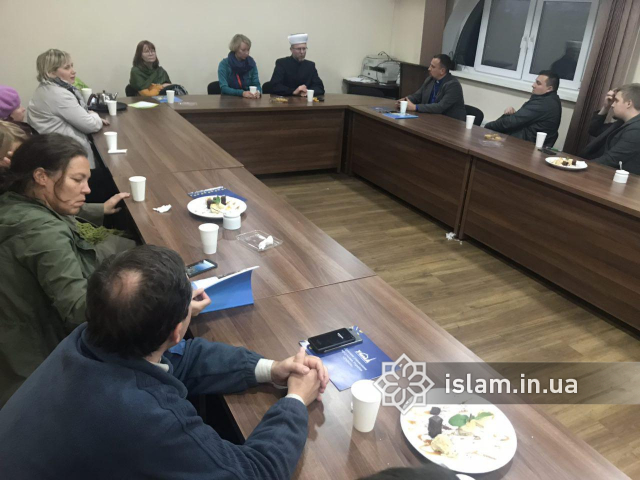From 8 to 12 October, the celebration of the 10th anniversary of Interdiac, the International Academy of Diaconia and Social Action, took place in Kyiv. The table of events included the international conference, organized by the St. Martin Lutheran community in Kyiv (Kyiv Lutheran Mission And Diaconia). About 70 churchmen and deacons from Europe, the USA, and Central Asia took part in the event.
Igor Shemigon, a pastor of St. Martin Lutheran Church in Kyiv, a member of the Missionary Union Council of the Evangelical Communities of Ukraine, told during the Dobra Rozmova program at Voskresinnya. Zhyve Radio, dated October 27, that in order to familiarize with the social service experience of religious organisations in Kyiv, the conference participants visited the Patriarchal Cathedral of Ukrainian Greek Catholic Church, Kyiv Islamic Cultural Centre and Choral Synagogue.
“The Participants have remembered a visit to the Islamic Cultural Centre due to its interesting presentations, a story about a wide range of its socially significant activities,” - said the pastor.
Their activities include educational work, aimed at overcoming negative acts in society, fighting xenophobia and racism, preserving and developing the culture of the Islamic world people. The information element is of particular interest: the ICC has a TV studio and Internet sites. The visits to the “Our Future” gymnasium, the women's section, the library, etc. made a favorable impression.
During the conversation with the guests, Sheikh Said Ismagilov, the Mufti of Ummah Religious Administration of Muslims of Ukraine, told about the efforts that activists and volunteers of Alraid All-Ukrainian Association’s organisations, as well as individual worshipers of Ukrainian ICCs’ mosques were making to help fellow citizens. Poor, homeless, lonely old people and children deprived of parental care are not left without the help of Muslims. Despite the fact that the number of adherents of Islam is not very big, they try to find opportunities to help those in need, without regard to their religious and ethnic affiliation. The guests learned about their other fields of work - human rights, education, career guidance, environmental protection, etc.
Said Ismagilov told the guests about assistance to displaced people from the temporarily occupied territories of Donbas and Crimea; helping the wounded in hospitals; imams chaplains’ work in the combat zone and in the rear; Muslim activists’ ongoing assistance to orphanages in Boyarka, Novohrad-Volynskyi, Korostyshev, etc.; regular blood donation campaigns, during which directly at the Islamic Cultural Centre the mobile team of the Kyiv blood transfusion station took blood at both Muslims and non-Muslims, who willingly responded to activists’ call to take part in a good deed.
Visitors also learned how the Muslims of Ukraine were building an inter-religious and intercultural dialogue in Ukrainian society, about developing of relations between the religious community and the state.
During the interview, Pastor Igor Shemigon told the radio journalist that not only sharing experiences, but also co-operation of different churches and religious organisations for the good of society were “the best way to prevent intolerance and xenophobia”. He also expressed the hope that this visit would be the beginning of Lutherans and Muslims’ joint good deeds in social service.
In addition, according to the pastor, that is important not only for Ukrainian society, but also for many other countries facing religious intolerance, aggression and misunderstanding between people - “the Ukrainian experience of not just peaceful coexistence among people of different cultures and religions, but their cooperation in good deeds can be an example for other countries.”
Concerning the topic of the conference, dedicated to the 10th anniversary of the Interdiac International Academy of Diaconia and Social Action, Igor Shemigon told that its main topic was conviviality, interpreted as “the art and practice of living together,” coexistence.
At the same time, the conviviality is based on the idea of the unique character of each person, the necessity to preserve the dignity of people and justice in society. The speakers, representatives of the International Lutheran Federation, Eurodiakonia and other Interdiac’s partner and friendly organisations, shared their experience on how conviviality could be implemented at the level of local congregations, and also talked about how to make a contribution to the development of politics, church activity and diakonia in different contexts.





